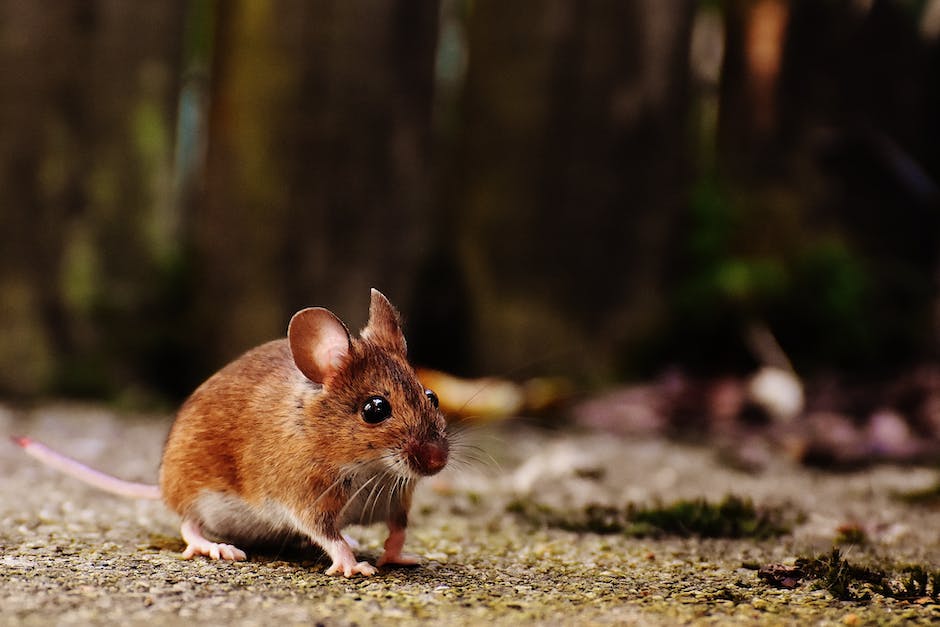Rats are unsightly, dangerous, and a general nuisance. If you have rats in your home, you’re probably looking for ways to get rid of them. Though there are many methods for getting rid of rats, one of the simplest is to scare them away.
The best way to scare a rat away is to make a loud noise. You can also try to scare it away by shining a light on it or waving your arms.
What do rats hates the most?
Mice and rats have a very strong sense of smell, and there are certain smells that they just can’t stand. Peppermint oil, cinnamon, vinegar, citronella, ammonia, bleach, and mothballs are all great at keeping these little pests away.
Rats and rodents are very sensitive to sound and will be frightened by any new or unexpected noise. However, once they get used to a sound, they will no longer be afraid of it.
How do you scare a rat out of hiding
There are a few things you can do to scare a rat out of hiding. One is to sprinkle a potent scent they find unpleasant, such as garlic, onions, cayenne pepper, cloves, ammonia, or alcohol. Another is to make loud noises or sudden movements to startle them. Finally, you can try using a rat trap to catch them.
There are a few things you can do to keep rats away:
1. Fill holes, cracks and gaps. Rats can slip into holes the size of a quarter, so be sure to seal up any openings around your home.
2. Don’t feed them. If you have food or garbage lying around, rats will be attracted to it. Keep your home clean and free of food scraps.
3. Remove their habitat. If there are trees, shrubs or other vegetation near your home, trim them back four feet to remove potential nesting sites for rats.
4. Set traps inside. If you have rats in your home, set traps to catch and remove them.
5. Repel rats: Use baits and poisons outside. If there are rats in your neighborhood, you can try to bait and poison them to keep them away from your home.
Do rats avoid humans?
Healthy rats typically avoid people and prefer to be active when buildings are quiet. However, when cornered, they will lunge and bite to defend themselves. The saliva of some species of rats carries hazardous diseases, such as leptospirosis and Hantavirus. In rare cases, rat bite victims may contract rat-bite fever.
While rats are comfortable in the light, they typically avoid it due to their nature. There are also certain types of lights that they may make additional effort to avoid, such as flashing lights. That is why so many companies sell light machines designed to deter rats; they have their basis in fact.
Does one rat mean more?
Rats are social animals, so if you see one rat then there are likely to be more nearby.
Rats have the ability to jump around three feet into the air, four feet horizontally and can fall from a height of up to 50 feet without getting injured.
If you see a rat, there is a good chance that there are more nearby. rats are able to jump high into the air, and can fall from great heights without being injured.
There’s no denying that rats are pretty gross creatures. They’re dirty, destructive, and can carry diseases that can be harmful to humans. They’re also known for biting people – in fact, it’s estimated that rats bite approximately 50,000 people each year. And if that wasn’t enough, they can also wreak havoc on crops and property. So when rats show up in your home, it’s hard to stay calm. But it’s important to remember that while they may be unpleasant, they’re not impossible to get rid of. With the right methods, you can get rid of rats for good.
Can rats climb walls
Rats and mice are both capable climbers, able to scale vertical walls and “shimmy” up tiny spaces. They’re also excellent swimmers, and have been known to enter homes through the water traps of toilets when infestations occur in the main sewerage system.
If you are bitten by a rat, it is important to seek medical treatment immediately. Some of the diseases that can be spread from rats to people include bubonic and pneumonic plague, murine typhus, salmonella, leptospirosis, Hantavirus, and tularemia. All of these diseases can be serious, and some can be fatal if not treated correctly. If you have any questions or concerns, please speak with your doctor.
Do rats go into bedrooms?
The reason for this sudden spike in rodent activities during the cold months is that mice and other rodents are scrambling to get inside homes for food and warmth. When they enter the home, the bedroom is one of the coziest places where they might find both amenities.
Rats are creatures of habit and will typically return to the same hiding spots over and over again. They prefer to hide in places that are tucked out of the way and that aren’t often disturbed. Outdoors they will hide under piles of debris, under trash piles, in dumpsters and trash cans, in trees, and in sewers. They can also be found under bushes and shrubs, in woodpiles, and in gutters.
What attracts rats to your room
Rats are attracted to food of any kind, including scraps and crumbs. This is especially true during the winter because rats need to eat twice as much compared to the warmer seasons. A home with easy access to food is virtually asking rodents to invade your home. To avoid this, make sure to keep your home clean and free of food debris.
Toxic foods are poisonous to rats and should be completely avoided. Avocado skin and pit, chocolate, citrus fruits, mango, green potato, fluorinated and/or chlorinated water, green bananas, and uncooked/dried beans contain toxic substances that can harm rats. Only filtered water should be used for rats, never tap water.
Will rats leave if you disturb them?
Once rats establish a nest, they are likely to return to it even if it has been disturbed. They are intelligent creatures and choose their homes wisely. Once they have taken the trouble to set up a nest, they will usually stay there. Rat are destructive animals and cause lots of damage by chewing and burrowing.
Yes, rats are excellent climbers and can easily get onto a bed. So if you have a rat problem, be sure to keep your bed away from walls and other objects that they can climb onto.
Why do rats run towards you
Previous research has shown that rats enjoy being tickled. They will run over to a person’s hand to get tickled more, and they emit a “laughing” sound that is too high-pitched for humans to hear without special equipment.
It is best to avoid wild rats as they may bite when handled. If you must approach them, do so with caution and do not attempt to feed them by hand. These nocturnal creatures are also known to bite sleeping people, particularly children and infants, on exposed body parts such as fingers, hands, toes and the face when foraging for food.
Conclusion
There are a few things you can do to scare a rat away. One is to make a loud noise. This will startle the rat and make it feel unsafe. Another is to make a loud noise and then follow it up with a sudden movement. This will make the rat feel even more unsafe. Finally, you can try to scare the rat away by using a light. Rats are afraid of the dark, so if you shine a light on them, they will usually run away.
There are a number of ways to scare a rat away. You can use a loud noise, such as a clap or a snap, to startle them. You can also use a strong light to dazzle them. Finally, you can use a rat-sized model or replica to intimidate them.

